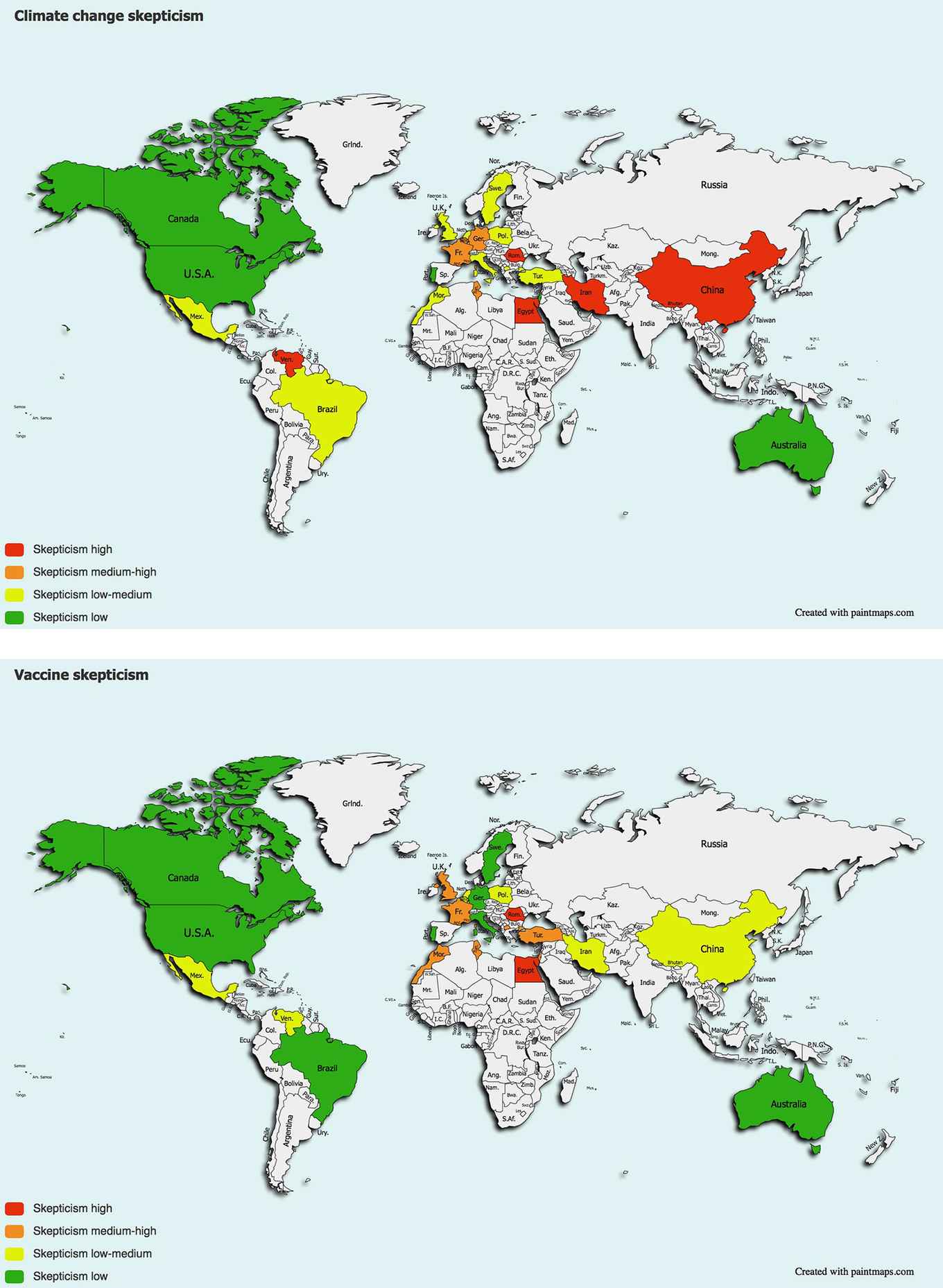Factors contributing to science rejection across countries
20 May 2021

Systematic and unwarranted rejection of science—that is, science skepticism—is a major societal problem that can have severely damaging effects on individuals and societies. To illustrate, two of the World Health Organization’s top 10 health threats for 2019 are firmly rooted in science skepticism: climate change and vaccine hesitancy. Vaccine hesitancy already led to various measles outbreaks in 2017 and 2018, and might also obstruct the probability of success of future public vaccination campaigns against COVID-19.
But is skepticism about climate change and vaccination shaped by the same causes? Although evidence has started to accumulate for the “heterogeneity of science skepticism”, we still have a lack of insight into how it varies in degree and in kind around the world. Such insight is important when the aim is to understand and reduce the rejection of science. An international team of researchers, led by UvA psychologist Bastiaan Rutjens, investigated science skepticism in 24 countries and offer a systematic cross-national investigation of the relative impact of various potential predictors of science skepticism.
Heterogeneity of science skepticism
The heterogeneity of science skepticism pertains to the predictors of science skepticism and to the domains of science skepticism. For example, climate change skepticism is primarily associated with political ideology, but not with religious or spiritual beliefs, whereas vaccination skepticism shows the opposite pattern. But heterogeneity also concerns potential cultural differences in science skepticism and its predictors. A systematic cross-national investigation of the relative impact of various potential predictors of science skepticism as manifested across domains was however lacking. This gap is now filled by Rutjens and his team with their synthesis of previous work and crucial test of its generalizability across societies.
Predictors of science skepticism are relatively similar across countries
Rutjens and his team tested predictors of science skepticism about climate change, vaccination, GM, evolution, and general faith in science in 24 countries across the globe. They found that while some countries stand out as generally high or low in skepticism, predictors of science skepticism are relatively similar across countries. One notable effect was consistent across countries though stronger in Western, Educated, Industrialized, Rich, and Democratic (WEIRD) nations: General faith in science was predicted by spirituality, suggesting that it, more than religiosity, may be the ‘enemy’ of science acceptance.
The study furthermore found that climate change skepticism was mainly associated with political conservatism, especially in North America. Other findings were observed across WEIRD and non-WEIRD nations: Vaccine skepticism was associated with spirituality and scientific literacy, genetic modification skepticism with scientific literacy, and evolution skepticism with religious orthodoxy.
The need to understand causes across domains and cultural contexts
The authors conclude that levels of science skepticism are heterogeneous across countries, but predictors of science skepticism are heterogeneous across domains. To illustrate, consider the issue of vaccine hesitancy as an example of how skepticism can pose serious risks to public health. The results of Rutjens et al’s study suggest that increasing scientific literacy might prove to be a more fruitful approach in some cultural contexts than in others. In contrast, a better understanding of the relation between spiritual beliefs and general science skepticism is likely to be extremely informative regardless of cultural context.
‘Any strategy aimed at combating science skepticism needs to be underpinned by a nuanced theoretical and empirical understanding of its causes across domains as well as cultural contexts’, conclude the authors.
Publication details
Bastiaan T. Rutjens, Nikhil Sengupta, Romy van der Lee, Guido M. van Koningsbruggen, Jason P. Martens, André Rabelo, Robbie M. Sutton (2021), ‘Science Skepticism Across 24 Countries’.